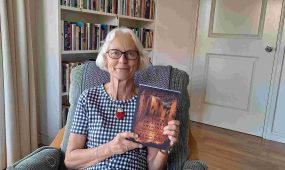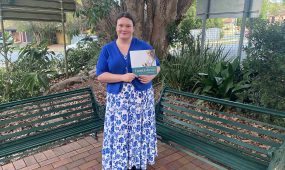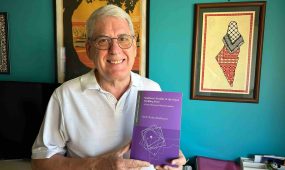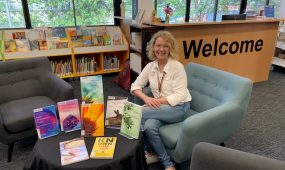My Body is Not a Prayer Request: Disability Justice in the Church
Books & Guides
“I stopped disclosing my disabilities after one conversation when I said I was autistic and had been having a hard time with sensory issues, and the person responded by saying that this was happening to me because I wasn’t praying enough. I saw this book, and my immediate thought was, ‘Yes! Someone gets it!’,” says Mel Maddox, Parish of Freshwater Synod Representative and Equitable Access Working Group member
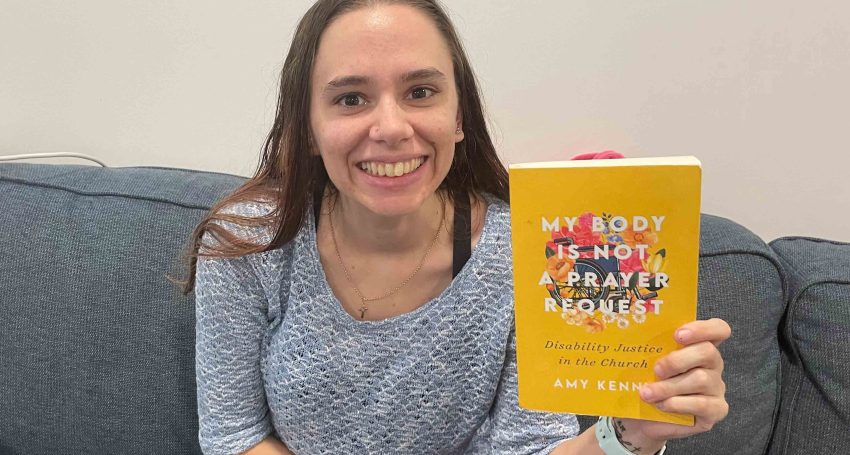
When I first heard about this book – before it was even published – I knew I had to read it. I first came across it soon after a conversation I had expressing my annoyance with ableism within the Church. I was specifically frustrated with the ableism I encounter in every aspect of my life. And, the one place I at least hoped would be free of ableism, that is the Church, wasn’t.
I have a number of “invisible” disabilities, so people typically aren’t aware that I am disabled until I tell them. I can’t count the number of times I’ve been in conversation with a parishioner or priest, when it has come up that I’m autistic or that I have postural orthostatic tachycardia syndrome (POTS), and their reaction is to say that they will pray for me, or that if I pray enough my autism will be cured, or other responses along these lines.
I stopped disclosing my disabilities after one conversation when I said I was autistic and had been having a hard time with sensory issues, and the person responded by saying that this was happening to me because I wasn’t praying enough. I saw this book, and my immediate thought was, “Yes! Someone gets it!”
The author, Amy Kenny, writes:
“I am hurt that I must justify my own existence at church. Belonging shouldn’t have the admission price of assimilation” (p.3).
Advertisement
Dr Amy Kenny is a disabled scholar. Her research focuses on medical and bodily themes in literature. In this book, she draws upon her experience as a disabled Christian to explore ableism within Church communities. Her experiences of often unintentional ableism are discussed alongside Biblical reflections to highlight that disability should be something to accept and celebrate:
“Disability acts as a method for revealing the living God to the community, not something that always needs to be prayed away to showcase God’s power” (p.7).
The thing that drew me most to this book is her reflections on the often insistent “need” to “cure” disabled people within faith communities, and how harmful this can be.
Dr Kenny starts off by describing an encounter with a woman she’d never met before who was adamant that she pray to cure her. This woman was bewildered when Dr Kenny said she didn’t need to be cured. The woman pushed harder, with the woman telling Dr Kenny that:
Advertisement
“…I have given up, that God wants more for me than life in a wheelchair” (p.2).
Dr Kenny goes on to write that:
“This woman is an echo of every prayerful perpetrator before her. They have many faces, but they always approach me with the same paternalistic confidence, eager to rid me of my wheelchair or cane. On repeat, they applaud the stories where Jesus healed a disabled outcast like me, without stopping to consider that curing bodies and healing lives are not the same thing” (p.2).
Encounters such as this follow disabled people everywhere, and not just in churches. While they are often well-meaning, they come with the assumption that disabilities need to be fixed, along with other sentiments that much of the disability community strongly opposes.
In the latter half of her book, Dr Kenny discusses how abled-bodied people can be better allies, highlighting the importance of inclusion:
“God doesn’t see me as disabled, yet communities gathered in God’s name disable me from fully participating. When a group of nondisabled people make all the decisions for a community, they unwittingly perpetuate practices that exclude disabled people” (p.131).
Related Story
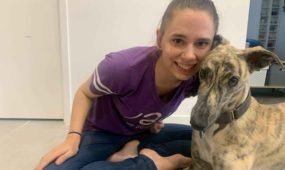 Features
Features
How to create a safe and welcoming space for autistic people to worship and serve
She invites readers to consider the perspectives of disabled people by listening to them in order to better understand their experiences.
Key to becoming allies for the disabled community is accepting and celebrating disability as a deliberate part of God’s creation and celebrating the diversity of gifts that come with disability.
I found this book really validating of my experiences as a disabled woman within the church community. It serves affirms that my disabilities are not the result of a lack of faith or lack of prayer.
It also challenges the reader to rethink the often ableist attitudes held by church communities and to reflect on the benefits of an inclusive and accessible church community.
Kenny, A. 2022. My Body is Not a Prayer Request: Disability Justice in the Church. Baker Publishing Group, Michigan, United States of America.

